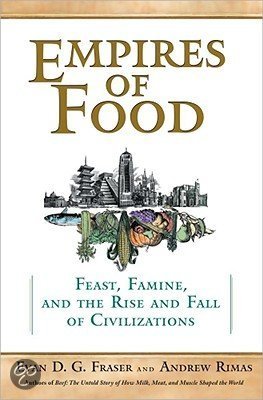Evan Fraser holds the Canada research chair in Global Food Security in the department of geography at the University of Guelph. He is the author of Empires of Food: Feast Famine and the Rise and Fall of Civilizations. Elizabeth Fraser is completing her MA in Global Governance at the Balsillie School of International Affairs at the University of Waterloo
They list ten things that we should know about the food system. The first three points run:
These three points alone begin to explore the incredible complexity of the modern industrial food system. The second point, that prices are unhinged from production, tell me one of the reasons the system is in such a mess--it is tied to the international speculation casino. I've written before about how after 2007, big money was looking for a safe harbour, and enormous volumes descended on agriculture futures contracts, driving up the consumer price index internationally.1. There's enough food for everybody
The most important thing to know about the global food system is also one of the least appreciated: there is enough food for everyone on the planet to live a healthy and nutritious life. In fact, the UN tells us that there is about 2,800 kcal per person per day available. But, the global food system is deeply inequitable. There are about 842 million people hungry on the planet, while at the same time there are about 1.5 billion who are overweight or obese.
2. Price volatility
The price of food is wildly volatile. In 2008, the United Nations Food Price Index almost doubled in less than a year before crashing in 2009. Prices then shot up again in 2010 and 2011. Despite this volatility, our supply of food stayed stable throughout this period. This suggests that the price of food is not determined by our ability to produce food at a global level.
3. One third of food is wasted
Approximately one third of the world's food is wasted before it is consumed (pdf). In the developed world most of the waste happens at the consumer end, when food spoils in grocery stores or in refrigerators. Most of the waste in the developing world happens on the farm as a consequence of inefficient storage and processing facilities.
